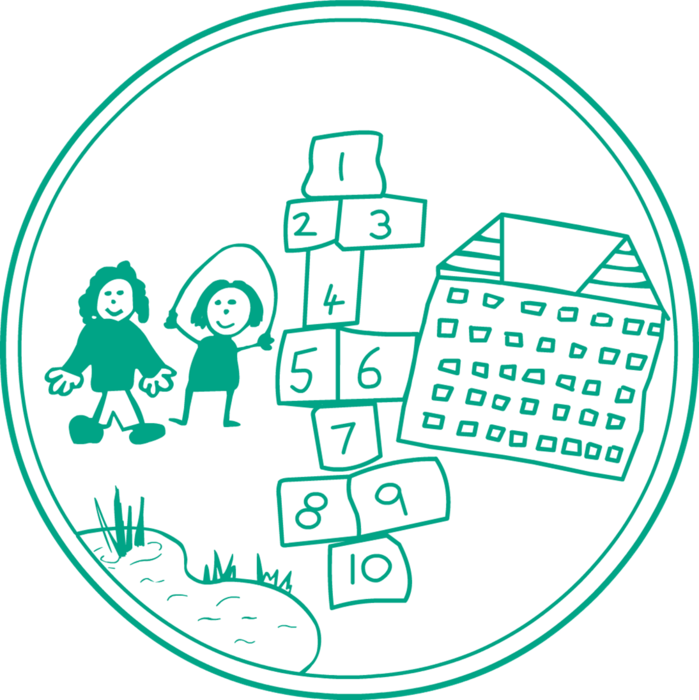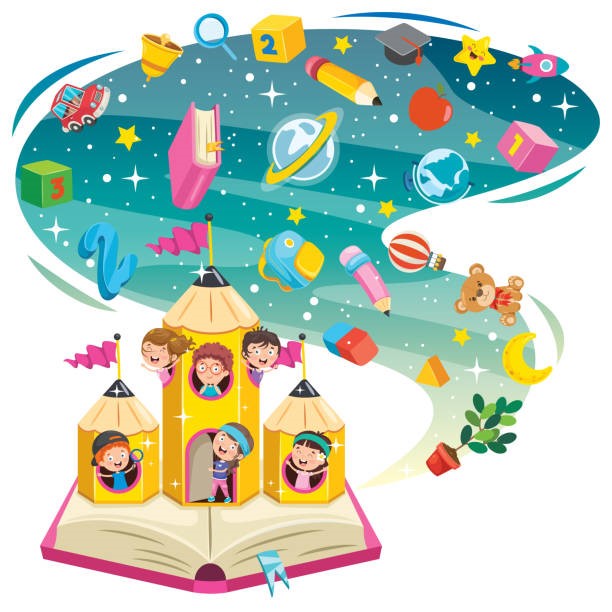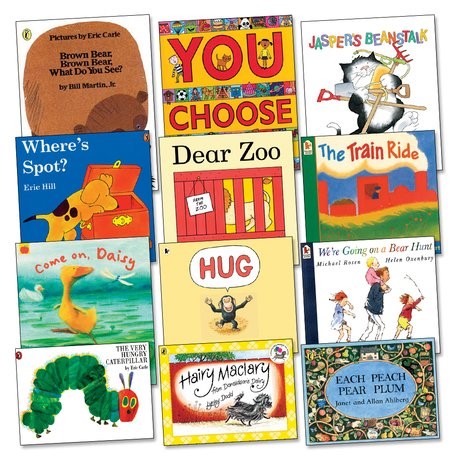Writing
|
Curriculum Sequence |
Gallery (Coming soon!)
|
Enrichment
|
Medium Term Overviews for Knowledge and Progression (coming soon)
|
Text Mapping:Year R Text Mapping:Year 1 Text Mapping:Year 2
|
Our Aims
We aim to teach children to become confident and proficient writers who can write effectively for a variety of purposes. Writing is linked to other curriculum subjects, including History, to ensure that children have opportunities to write in a range of styles for different purposes with both interest and enjoyment. Texts are carefully selected in each unit of writing to ensure rich language and high quality models are shared with the children throughout. The recent Ofsted review states how ‘these few books form the foundation of their knowledge of how literature works within and interacts with society’.
The teaching of writing is broken down into two broad categories.
- Transcription (spelling and handwriting)
- Composition (articulating ideas and structuring them in speech and writing).
As outlined in the Ofsted review for writing 'It is essential that teaching develops pupils’ competence in these two dimensions.
We aim to foster children with a love of language and celebrate new vocabulary on class magpie walls. We value the writing process by putting equal waiting on the planning, writing and editing stages. We strive to install all our children with the growth mindset that they are writers.
Our Writing Journey
Writing journey’s are carefully sequenced so equal waiting is placed on both: transcription and composition. Children are given authentic writing opportunities and provided with frequent opportunities to practise fluency in writing so they become confident writers.
Our Shirley Infant Writing Mantra is to…..’Think it, say it, write it, read it, check it’.
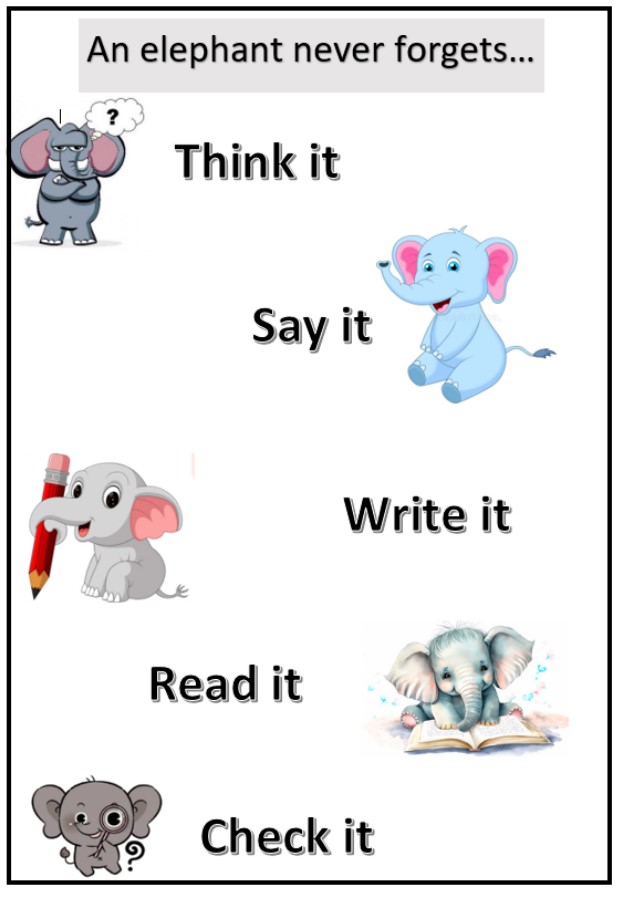
This mantra is used throughout the 3 stages of our writing journey
- Immersion
- Oral Rehearsal
- Writing
Immersion (Think it)
Through the introduction of a high quality children’ text, our children become fully immersed through role play and drama. The children explore rich vocabulary and this is added to class magpie word walls. This supports children’s working memory to gather and generate ideas for writing.
Oral rehearsal (say it)
Children are given the opportunity to rehearse their writing through storytelling, talk partners and whole class discussions. Writing frames such as story roads and planning boxes are used to help the children sequence their ideas and frame the narrative for their writing.
Writing (write it)
This is broken down into Shared, Guided and Independent practice.
Shared writing
High quality modelling is used to draw on cognitive and metacognitive strategies to explicitly model the process and skills for writing. Equal waiting is placed on transcription and composition to support the children’s fluency in writing. The teacher will take the children’s suggestions and them to compose a piece of writing. The children work with white boards or paper in pairs or individually and contribute to a shared piece of writing. They might be asked to write words or sentences that may then be used in the shared writing.
Guided writing
Children are encouraged to write for themselves using their phonic knowledge. The teacher directs the session by focussing the children on writing targets (See Writing Staircase targets) that have been set for the group or individually, while also helping them to understand the objective for the actual piece of writing. Guided writing time can be used to set and review targets and to support children in editing a piece of writing.
Independent Application
Our children will have opportunities to apply taught skills to longer pieces of writing. In each half term the children will work towards completing 2 or 3 longer sustained pieces. We endeavour to provide an authentic writing purpose for this to motivate our children. Prior to the writing, the teacher would co-construct success criteria with the children for their writing. They would use their knowledge of the effectiveness of the text to support this.
Edit (read and check)
Once children can write independently, they will be taught to edit their writing to check the composition and spelling and grammar. Children edit their work with a purple pen and this is introduced in the latter part of the Early Years. This is introduced to the children as the elephant who never forgets........ It reminds them to check all the components of a sentence. (capital letter, full stop ,sounds in a word, correct letter formation). In Key Stage 1 this will be referred to as the non-negotiables of writing. In Year 2, they will begin to evaluate their word choices and make improvements. Some children will redraft parts of a text.
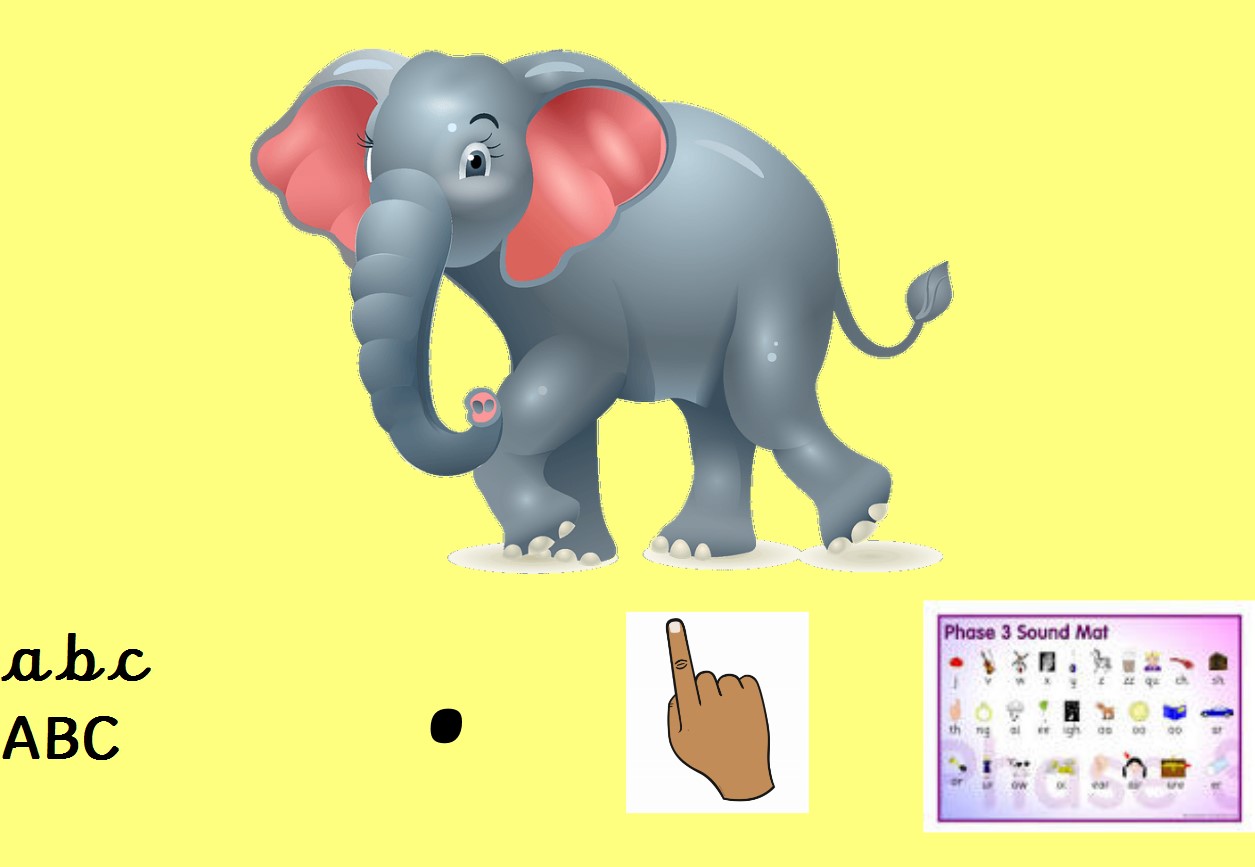
Below is an example of a learning journey
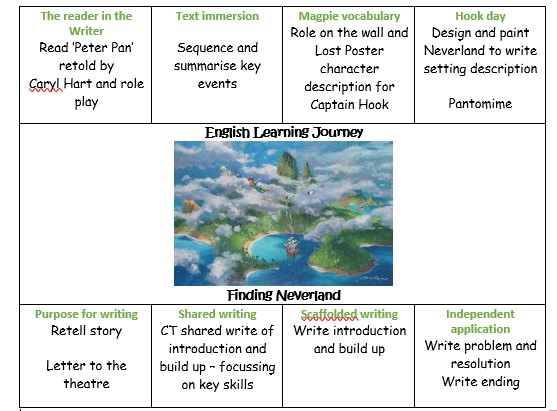
Marking and feedback
Teachers will provide ongoing verbal feedback throughout all stages of the writing process as outlined as imperative in the Ofsted review.
‘Research suggests that feedback should be immediate and precise when pupils are learning new knowledge and skills in order to prevent them from making errors and developing misconceptions.
In longer pieces, the teacher will provide a star and a wish to celebrate their achievements.
Every child is given an individual writing target from our Staircase and this will form part of the success criteria for their piece of writing. See an example below.
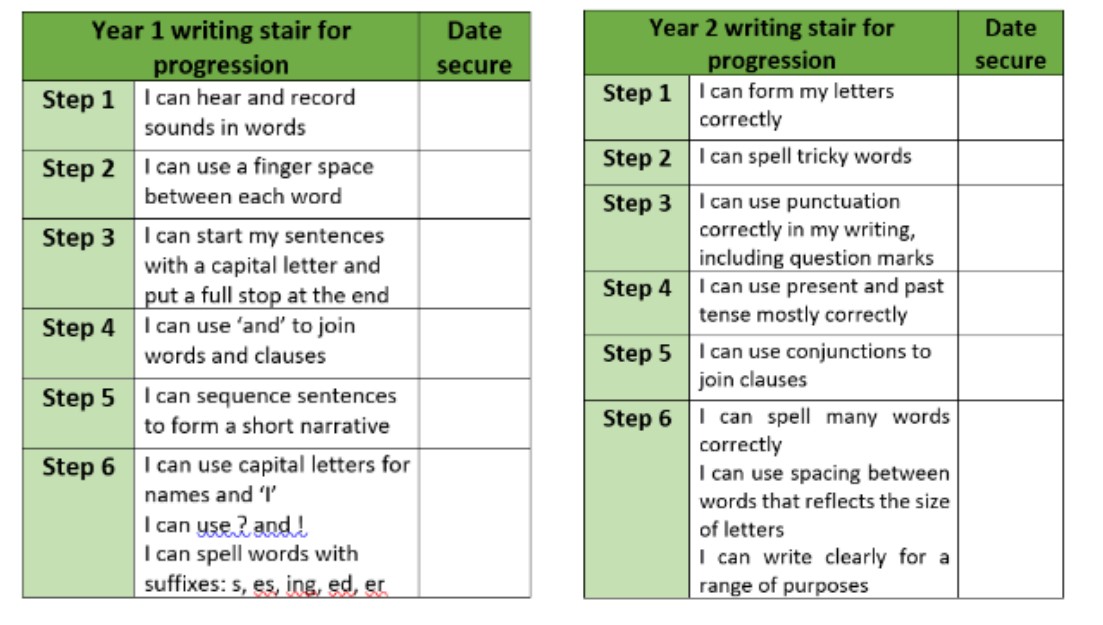
Handwriting
Children learn the letter formations as suggested in the Little Wandle phonics programme. In Key Stage 1 they have 3 handwriting sessions per week. In Year 2 they are taught to write each letter in cursive script and taught some simple joins. Please click on the links below to see the handwriting overviews for each year group.
Early Years Handwriting Overview
Year 1 Handwriting Overview
Year 2 Handwriting Overview
Spelling
When children have acquired a working knowledge of letter/sound correspondence through the actions taught through Little Wandle, they are encouraged to ‘sound out’ words for themselves in their own writing. Phonetic sound mats are available to support children in finding and selecting sounds to write words.
Common exception words are available to children either on a ‘word wall’ or on word cards, and children are encouraged to check the correct spelling of an increasing number of these words. Topic words are made available to support children in their writing.
In years 1 and 2, the children will continue to follow the Little Wandle programme. They will be taught to choose the correct grapheme to spell words based on the graphemes they have been taught so far. They will be taught how to add simple suffixes to words when there is no change to the root words. They will learn to spell the year one common exception words. In year 2 the children will develop strategies to support their spelling of words containing graphemes they have been taught so far. They will learn how to add suffixes to words when there may be a change to the root word. They will be taught how to spell the year 2 common exception words correctly.
Please click on the high frequency lists, for each year group.
Early Years tricky words
Year 1 Common Exception words
Year 2 Common Exception words
Enhancements
Whole school reading and writing week.
These occur annually during the week of World book day. The children watch a pantomime performance staring their teachers. They then become immersed in a book where they use talk for writing to help scaffold an imaginative piece of writing.
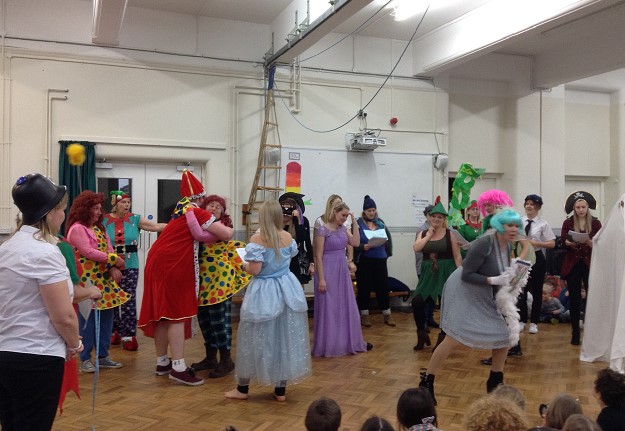
Writing competitions
Every year we have a whole school writing competition based around a theme. This year the children will take part in a poetry competition.
Trips often become the hook to provide children with the language and context for writing.
Year R : Farm visits to school, for children to have a hands-on animal experience. This enables the children to write a recount of their experience.
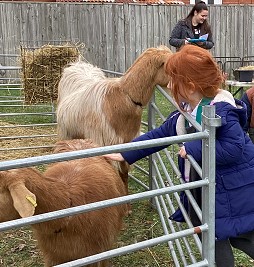
Year 1
- Visit from Zoo Labs to support the writing of Animal fact files.
- Trip to Hillier’s Garden Centre to focus on Minibeasts and Growing Plants
- Children grow caterpillars into butterflies and release them into the school grounds. They write an explanation of this cycle.
- Visit to Manor Farm to find out about Victorians. This enables them to write a diary in the role of a Victorian child.
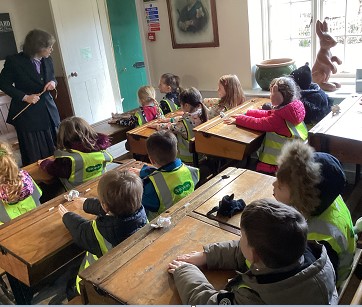
Year 2
- Visit to Sea City to learn about the Titanic. The children then write a chronological report about the Titanic.
- Visit from a chocolate maker to learn the history of chocolate. They write a non-chronological report on chocolate.
